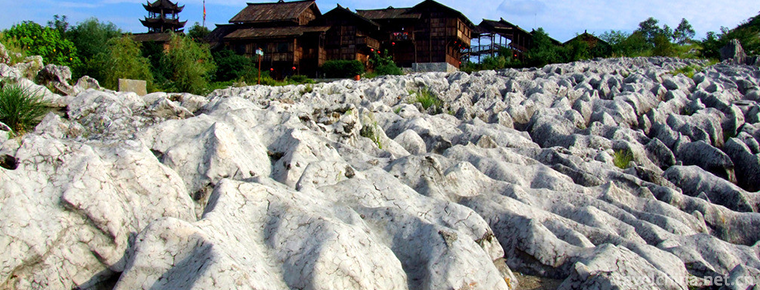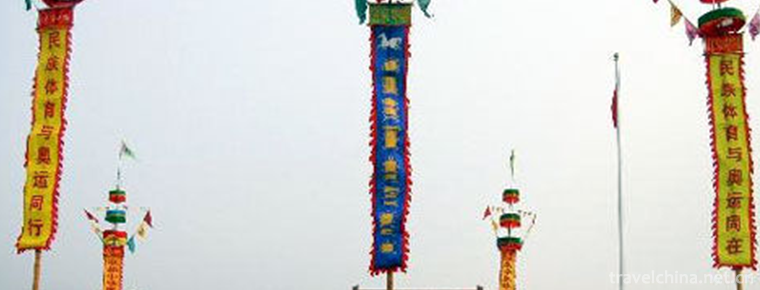Cantonese crispy fried pork
Crispy fried pork is a traditional dish with color, aroma and taste. It belongs to Guangdong cuisine department. This dish is one of the classic Cantonese cured wax. The crisp-skinned roast meat is characterized by its fleshy, fragrant and crisp taste. It is called Yiju. A piece of meat can taste three kinds of taste. First, it will feel the crispness of skin, secondly, it will feel the softness of fat, and finally, it will feel the sweetness of lean meat.
One piece of pork (about 300 grams), 10 grams of salt, 10 grams of spiced powder, 10 ml of soy sauce, 8 grams of sugar, 5 grams of baking soda, 1 onion, 3 pieces of ginger, 3-4 bamboo sticks and one tin paper.
1. Wash the pork and cook it in a cool water pan. Add onions and ginger and cook it slowly until the meat discolors. Put chopsticks together without spilling blood and water. The meat is about 7 years old.
2. When the meat is cooked, remove the cold water immediately. After a little cooling, use the towel to dry the water.
3. Put some holes in the skin with bamboo sticks, the finer the hole is, the better. Then scrape the white film and impurities on the skin with a knife.
4, sprinkle a small amount of salt on the skin (about 3 grams) and apply baking soda.
5. Turn the pork over, cut a few knives at the side of lean meat to taste evenly. Then pour the remaining salt, sugar, spices and soy sauce into a bowl. The lean meat portion is salted down in the seasoning for 1-2 hours.
6. Remove the cured pork, drain the excess juice, cross-string it with bamboo sticks to prevent deformation, and then wrap the meat around tightly with tin paper, leaving only the skin exposed outside.
7. Keep the oven's heat at 250 degrees (or the highest temperature) for about 30 minutes, or remove the black coke from the skin until it starts to turn yellow and coke. Scrape the black coke with a knife.
8. Spread a layer of edible oil on the scraped meat skin surface and continue to put it in the oven. Bake it for 10 minutes with 200 degrees of fire, or see the oil on the meat skin surface.
9. Finally, slice the roast meat after slightly cooling. The skin can be eaten with sugar, and the lean meat can be eaten with soy sauce.
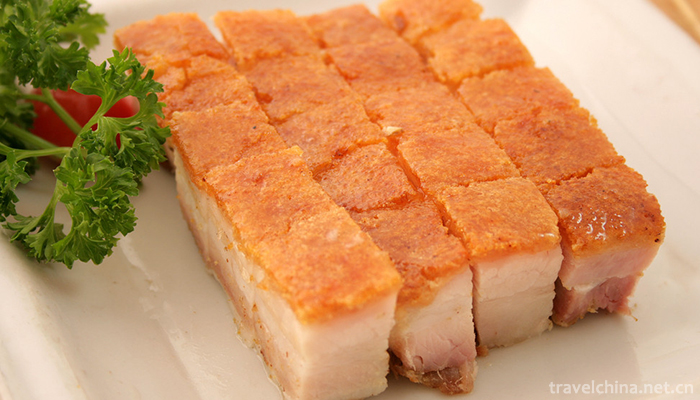
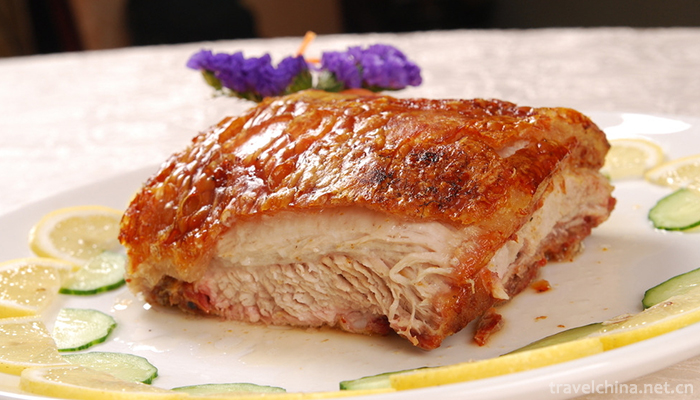
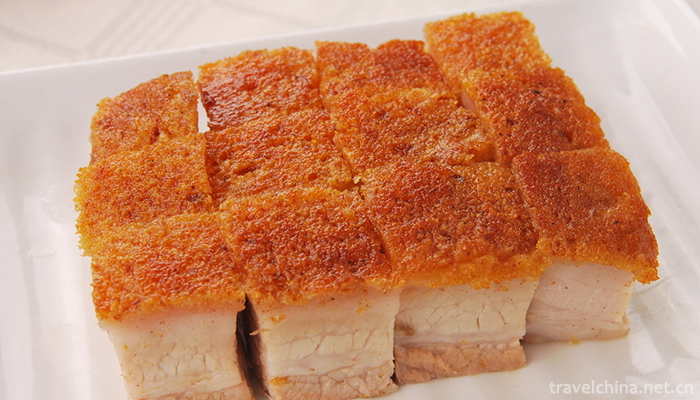
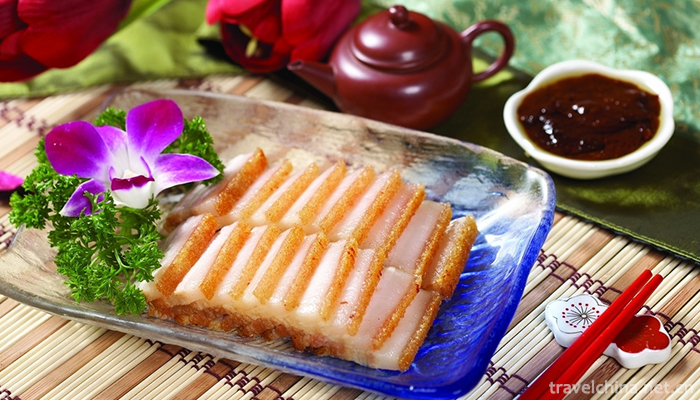

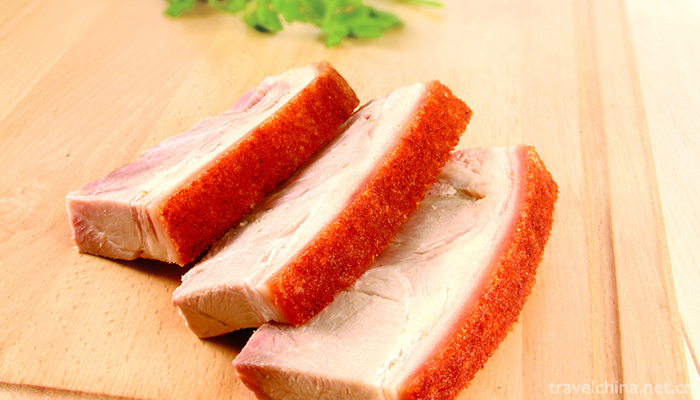
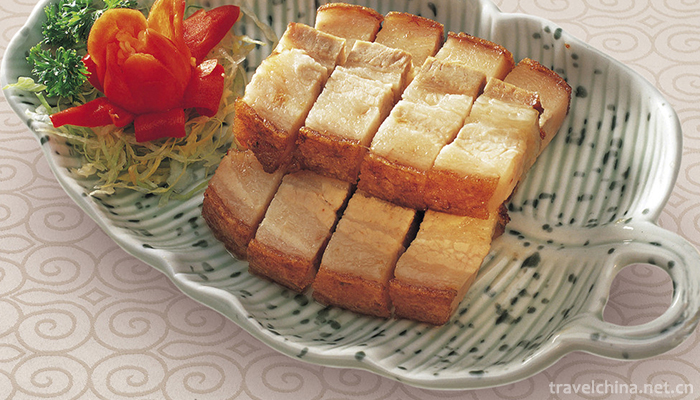
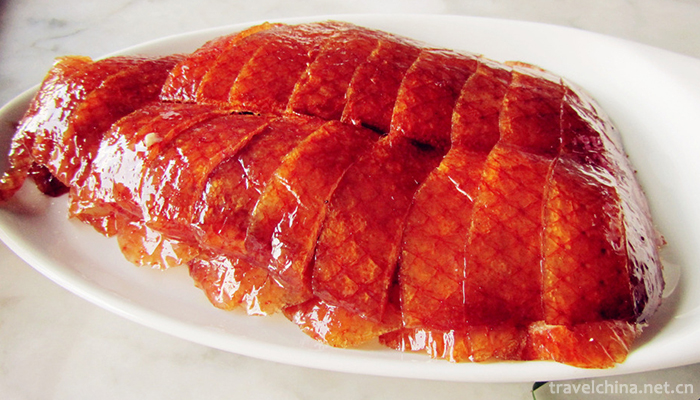
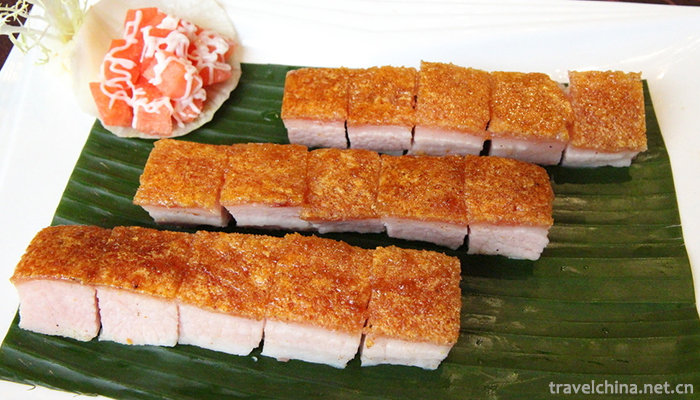
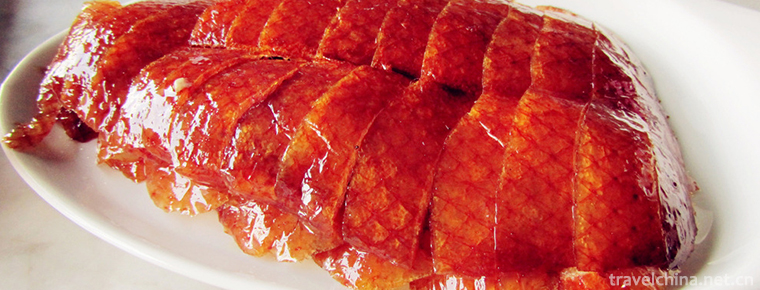
Cantonese crispy fried pork
-
Lhanagtso Rakshas
Views: 184 Time 2018-10-12 -
Xingwen sea
Xingwenshihai is located in Xingwen County, Yibin City, Sichuan Province. It is located in the transition zone between Sichuan Basin and Yunnan-Guizhou Plateau. Its total area is about 156 square kilo
Views: 269 Time 2018-12-24 -
Legend of Cao Xueqin
The legend of Cao Xueqin refers to the story that the common people in the place where Cao Xueqin lived in his later years respected him and processed his deeds into a story.
Views: 141 Time 2019-04-15 -
Traditional Wooden Ship Manufacturing Techniques
Fuyang has a long history of shipbuilding. As early as the Tang Dynasty, water transportation was glorious. Fuyang Lingqiao wooden boats are mainly distributed in towns along the Fuyang River, especia
Views: 358 Time 2019-04-21 -
Firing Techniques of Fengxi Porcelain
Fengxi Porcelain Firing Technology, a local traditional technology in Fengxi District, Chaozhou City, Guangdong Province, is one of the national intangible cultural heritage.
Views: 806 Time 2019-04-29 -
Uygur Residential Architecture Skills Aiwan Sailai Residential Construction Skills
Uygur Aiwan Sailai dwellings are mainly distributed in towns and villages along the desert edge of the Tarim Basin, especially in Yutian, Moyu, Minfeng, Pishan, Hetian, Shache and Kashgar along the so
Views: 310 Time 2019-06-26 -
Yongxiu Yaya Opera
Yongxiu Ya Opera originated in Wu Town, one of the four famous towns in Jiangxi Province. It was born in the late Ming Dynasty and Ganbei Bench Opera. Because all of its female characters were played
Views: 229 Time 2019-07-14 -
acrobatics on a high flag pole
The banner is a kind of flag with different sizes. Zhongbian is a kind of flag with gorgeous decoration, honor features and competition strength. Zhongbian originated from the flagpole of the Royal Gu
Views: 285 Time 2019-08-03 -
Huangjing Nature Reserve
This entry is lack of overview map, supplement the relevant content to make the entry more complete, but also quickly upgrade, come on!
Views: 326 Time 2020-10-16 -
Ding Zhen heaven on earth with fire
This "paradise on earth" with fire Ding Zhen absorbed tens of millions of powder overnight, and the search volume increased by 620%
Views: 82 Time 2020-12-07 -
Neijiang ten sages
Ten sages are outstanding representatives of historical figures in Neijiang, which are described as "one division, two phases, three number one scholars and four great masters";
Views: 357 Time 2020-12-16 -
Yibin medical and health
By the end of 2019, there are 5120 medical and health institutions in Yibin City, including 135 hospitals (102 private hospitals); 4945 primary medical and health institutions, including 177 township health centers, 46 community health service centers (stations),
Views: 352 Time 2020-12-18

